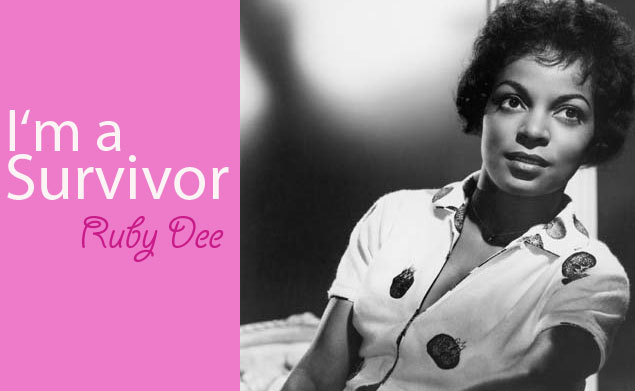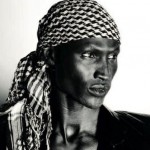
“The kind of beauty I want most is the hard-to-get kind that comes from within — strength, courage, dignity.” – Ruby Dee
Born on October 27th, 1924, Ruby Dee has been an important force in the movement of African-American culture. Being the first Black woman to play lead roles at the American Shakespeare Festival, Ruby Dee has helped to pave the way for African American actors. A former graduate of the American Negro Theatre, Ruby Dee has starred in many memorable and important films including A Raisin in the Sun (1961), Roots (1978) and American Gangster (2007).
In addition to her film career, Ruby Dee has also been a staunch supporter and promoter of Black heritage. She has collaborated on several projects designed to promote Black heritage, including producing the Ruby Dee/ Ossie Davis Story Hour, where she travelled the country to talk to authors and accomplished Black scholars and actors about their experiences.
Ruby Dee has also been an activist, fighting against injustice and racism in the U.S. During the Civil Rights Movement, she participated in Martin Luther King Jr.’s March on Washington in 1963 and has received many accolades for her activism including the Frederick Douglass Award for distinguished leadership toward equal opportunity in 1970. Recently, Ruby Dee was arrested for her participation in the protest against the fatal shooting of an unarmed West African immigrant, Amadou Diallo by white police officers in New York City.
Along with all the aforementioned accomplishments, Ruby Dee has also managed to be a breast cancer survivor for over 30 years. Diagnoses with maligned breast cancer in 1970, Dee has never let the disease take a hold of her life. She has surged forward and continues to serve as an inspiration for people from all walks of life.
According to the Oncologist, African-American women face a greater risk for being diagnosed with early-onset breast cancer. They also report that where 20% of Caucasian-American breast cancer patients are younger than 50 years of age, 30%–40% of African-Americans are breast cancer patient. This is important because most detection and screening for breast cancer are conducted on women 50 years and older. Knowing their increased risk at a younger age, it is imperative that African-American women undergo detection and screening at an early age.
It is estimated that about 1 in 8 women in the United States (12%) will develop invasive breast cancer over the course of her lifetime. Early detection and screening lessens one’s risk of developing the disease. Join Orijin Culture Pink Campaign by spreading the knowledge and promoting awareness.
Words of encouragement:
Throwback: A Raisin in the Sun (1961) with Rube Dee
Latest posts by Nekita (see all)
- Before Rihanna there was Grace Jones - December 27, 2014
- Marimba: Expression of Freedom, yet my Afro-Ecuadorians… - December 25, 2014
- Who Makes Claim to Being the Reggae Capital of the World? - December 24, 2014




Pingback: Black History Month Profile: Ruby Dee | Delaware Breast Cancer Coalition